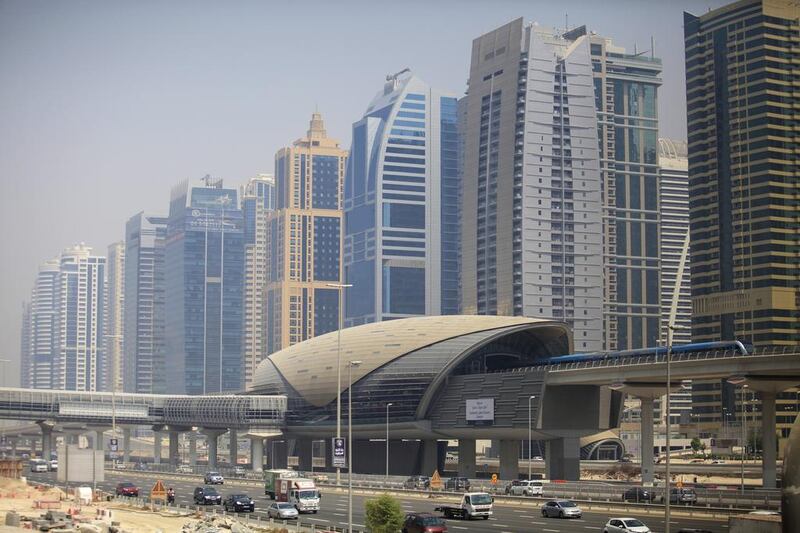DUBAI // Self-contained communities that encourage people to live near their workplaces are the way to tackle Dubai’s traffic congestion, according to a top municipality official.
Townships that reduce the amount of commuting residents undertake is part of Dubai’s masterplan for Desert Rose, a housing project for Emiratis that could become a template for future ventures.
“Desert Rose is a sustainable city in all aspects and any part of the city can adopt its principles,” said Abdulla Rafia, the municipality’s assistant director general.
The Dh35 billion project, to be built in the shape of a desert rose near Al Ruwaya and Emirates Road, will comprise 20,000 homes for Emiratis and 10,000 low-cost houses for expatriates.
The latter will be for those providing services to the township, making it unnecessary for residents to travel elsewhere for accommodation.
The civic body announced this week that it would soon appoint infrastructure consultants for the township that was planned to cover 4,000 hectares.
While a definitive date has not been set for completion, planners said they could deliver before Expo 2020.
Mobility, sustainability and opportunity were the key themes that won the emirate the rights to host the world’s fair.
“Setting up new housing projects is not a matter of choice anymore for Dubai, these new projects are required to absorb economic expansion,” said Cedwyn Fernandes, chief executive and professor of economics at the Institute of Management Technology, Dubai.
“Dubai’s 2021 Strategic Plan calls for smart and sustainable cities, and starting these projects from ground up will enable the incorporation of the latest technologies.”
He said satellite townships could ease congestion if they were self-contained.
“Most important is that there should be employment available near the new township at the level suited to the requirements of the people living there.”
Desert Rose will be the largest integrated venture undertaken by the municipality. A network of buses, light rail, and paths for pedestrians and cyclists will connect it to the city.
Its plan calls for providing government services to encourage Emiratis to live and work there.
Individual villas, semi-detached villas nd homes within four-storey buildings will be available for Emiratis.
Houses for expatriate workers will extend along the light rail network route.
“A lot of these projects are just dreams on paper, here we will make dreams come true,” Mr Rafia said during the recent Destination Dubai 2020 conference. “In Dubai you would have seen in the past 24 months that there are congested roads all over the place, even in residential areas.
“The reason for this is not that there are not enough roads or interchanges, its just that the population split is not correctly set.”
At Desert Rose, Emiratis will be able to secure employment at a renewable energy plant, recycling plant for irrigation, an agricultural green belt that will double as a recreation picnic area, or an eco park on the light-rail network.
“We don’t want a future Dubai that is totally congested,” Mr Rafia said. “We can’t have the metro line go to every house, but we need to set some policies to relieve us from the traffic jams we have now.
“The Desert Rose model, if implemented, will see a relief from traffic jams. It’s OK to generate jobs for people from outside but that should be just 20 per cent.”
The broad goal, he said, was to create an ideal township with new policies and not to rebuild the city’s existing office areas. A similar idea was also planned for Dubai World Central.
“The Desert Rose is an excellent example of forward thinking by Dubai Municipality,” Dr Fernandes said. “It plans to provide a large number of government services and this would encourage Emiratis to live near their workplace.
“Additionally, the Dubai World Central will be fully functional by then and will create additional jobs.
“Public mobility options like the metro and monorail will help to reduce congestion, but location of jobs is the most important.”
rtalwar@thenational.ae







